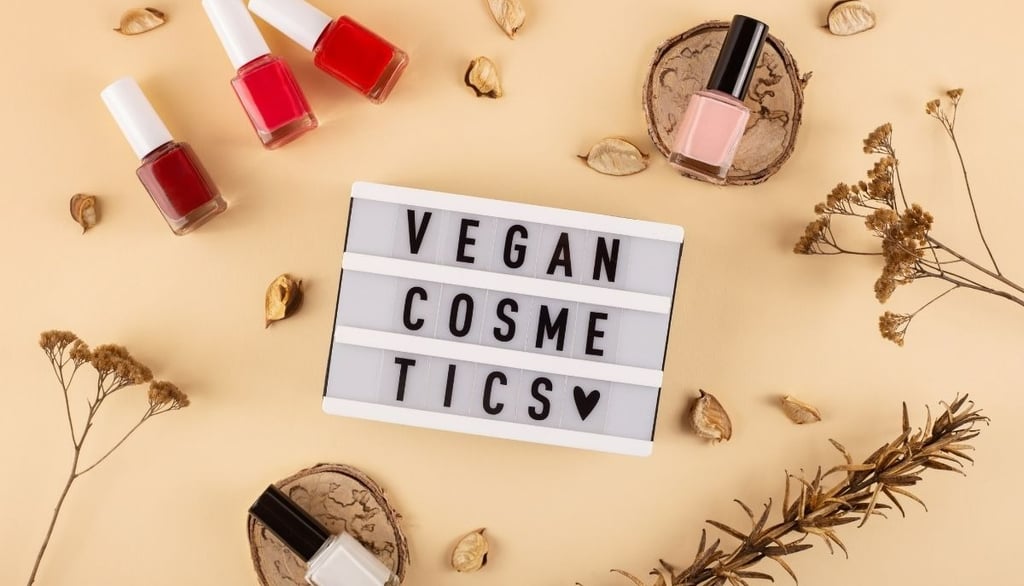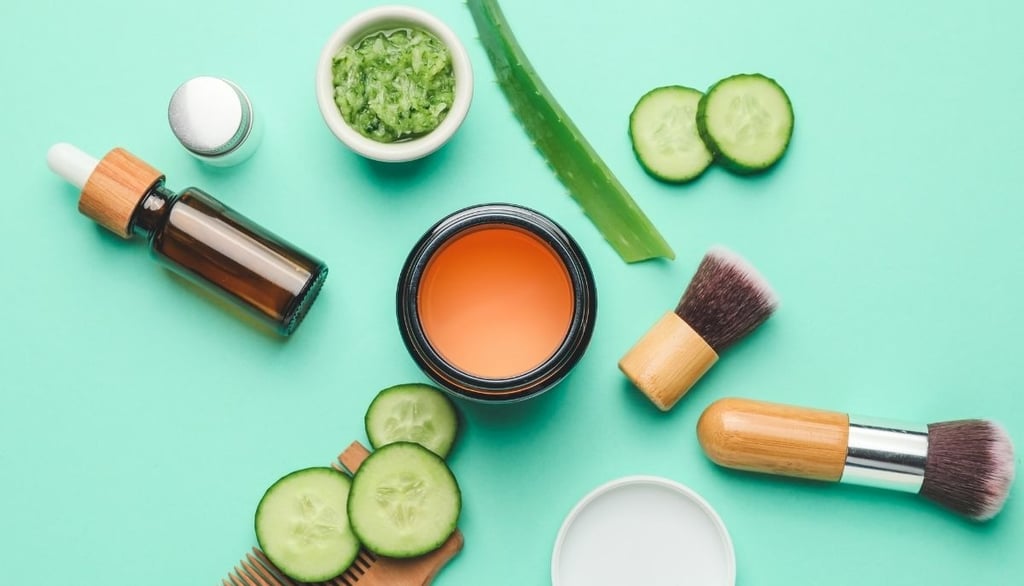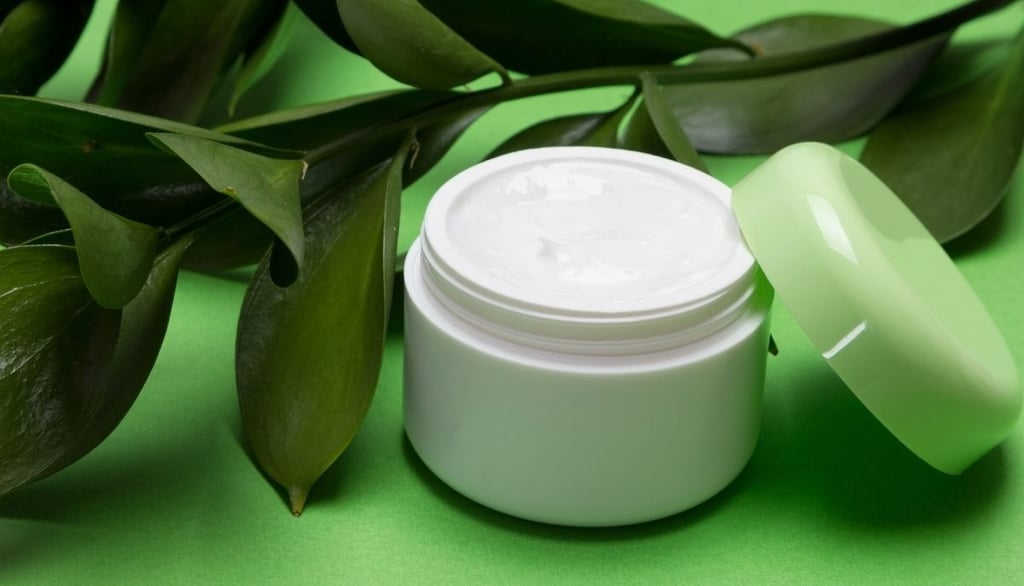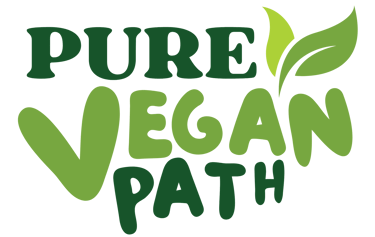Why Vegan Cosmetics Are Better for the Environment
Learn how vegan cosmetics benefit the planet by reducing deforestation, water pollution, and waste. Discover eco-friendly brands and sustainable beauty practices.
1/24/20253 min read


Why Vegan Cosmetics Are More Environmentally Friendly
The beauty industry is transforming, with vegan cosmetics at the forefront of a more sustainable future. Unlike traditional products, vegan cosmetics avoid animal-derived ingredients and testing, offering tangible environmental benefits. From combating deforestation to reducing toxic waste, here’s how vegan beauty leads the charge for a greener planet.
The Environmental Impact of Vegan Cosmetics
Reducing Animal Agriculture’s Environmental Toll
Animal agriculture contributes heavily to deforestation, greenhouse gas emissions, and water pollution. Vegan cosmetics bypass ingredients like lanolin (from sheep's wool) and carmine (a red pigment from insects), which require intensive animal farming. For example, reducing carmine production alone could significantly lower land use and methane emissions tied to livestock.
Did You Know? According to a study by FAO, animal agriculture is responsible for 14.5% of global greenhouse gas emissions.
Formulated with Natural, Biodegradable Ingredients
Vegan beauty products are often crafted from plant-based ingredients, typically biodegradable and less harmful to ecosystems. By avoiding synthetic chemicals, these products minimize pollution in waterways and soils.
For instance, plant-based surfactants in vegan shampoos degrade faster than synthetic alternatives, reducing their environmental footprint.
Pro Tip: Look for certifications like "Certified Vegan" or "Leaping Bunny" to ensure products meet ethical and sustainable standards.
Read more: Top 10 Superfood Mushrooms


Combating Deforestation and Palm Oil Dependency
Many traditional cosmetics contain palm oil, a leading cause of deforestation. Vegan brands often opt for sustainable alternatives like coconut oil or shea butter. This shift not only protects vital forests but also helps preserve biodiversity.
Brands Leading the Way: Companies like Ethique and Pacifica Beauty avoid palm oil entirely, offering eco-conscious consumers ethical choices.
Sustainable Packaging in Vegan Beauty
Innovative and Eco-Friendly Packaging
Vegan brands are pioneering sustainable packaging solutions:
Recycled Materials: Packaging made from post-consumer plastics and paper minimizes resource extraction.
Biodegradable Options: Materials like bamboo, sugarcane, or cornstarch reduce landfill waste.
Refillable and Reusable Packaging
Brands like Lush and RMS Beauty offer refillable containers, encouraging consumers to reduce single-use plastics.
Example: A glass jar of moisturizer can be reused for storage or recycled, drastically lowering its lifecycle impact.
How to Choose Eco-Friendly Vegan Cosmetics
1. Check Ingredient Lists
Opt for products with plant-based, biodegradable ingredients. Avoid harmful chemicals like parabens and phthalates.
2. Examine Packaging
Prioritize minimal, recyclable, or refillable packaging. Look for brands that offer compostable options or take-back programs.
3. Research Brand Ethics
Support companies committed to ethical sourcing, transparency, and cruelty-free practices. Explore their sustainability reports for more insights.
Mindful Beauty Practices for Waste Reduction
1. Use Products Efficiently
Follow directions and use only what’s needed to extend product life.
2. Repurpose Packaging
Get creative: Use cleaned jars for storage or DIY projects.
3. Participate in Zero-Waste Initiatives
Brands like The Body Shop have take-back programs for used containers, closing the loop on product lifecycles.
Read more: Bitterroot Coffee Blend


Common Myths About Vegan Cosmetics
Myth: Vegan Cosmetics Are More Expensive
Fact: While some premium brands are costly, affordable options like e.l.f. Cosmetics offer vegan products at competitive prices.
Myth: Vegan Products Are Less Effective
Fact: Plant-based ingredients, like aloe vera and shea butter, are renowned for their efficacy in skincare and haircare.
Conclusion
Switching to vegan cosmetics is a simple yet impactful way to contribute to environmental conservation. By choosing products with biodegradable ingredients, sustainable packaging, and ethical practices, you not only reduce your ecological footprint but also support a cruelty-free, greener future.
Take the first step today—explore the growing world of vegan beauty and make mindful choices that benefit the planet and your health.
Pure Vegan Path
Explore plant-based living and delicious recipes.
Contact
Newsletter
info@pureveganpath.com
123-456-7890
© 2024. All rights reserved.
